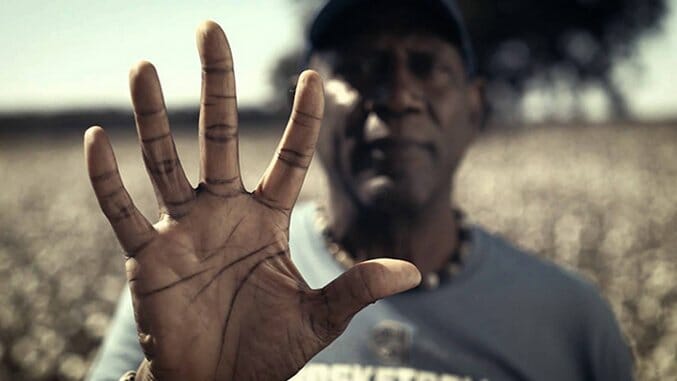Full Court: The Spencer Haywood Story

The sports documentary of quick rises, inevitable falls and redemption gets a brief workout in Full Court: The Spencer Haywood Story, a moderately involving look at a man who helped shape the course of the NBA and those who aspire to play in the league on their own terms.
For those, as I was, unfamiliar with Haywood’s accomplishments on and off the court, Haywood himself brings viewers up to speed with stories of his family’s struggles as sharecroppers and cotton pickers in Silver City, Mississippi, and the heroics that would lead him to a life of fame and substantial earnings. This means covering a high school basketball championship, record-setting performance with the USA gold-medal-winning Olympic team, league-leading achievements in the ABA and NBA, and an era-defining court battle. Early in the film, Haywood walks through a cotton field while sharing what life was like for him, his siblings and a hard-working mother who had to raise and provide for them after her husband died. Those trying circumstances end up being the catalyst that leads him to contest the NBA’s rule that a player had to be four years out of high school before joining the league.
When Haywood’s not doing the talking, Chuck D (of Public Enemy) provides additional narration, guiding us through the adversity, racism, second chances and self-destructive behavior that marked Haywood’s life through the early 1980s. Though along the way we stop at a junior college in Colorado, the University of Detroit and the gold-medal winning Olympic basketball team of 1968, Haywood’s professional days begin in 1969 with the American Basketball Association’s Denver Rockets and a headline-grabbing contract that wasn’t what the press made it out to be. Realizing this, Haywood would go on to sign with the NBA’s Seattle SuperSonics, a move that led him to spend, as he puts it, “more time in court than on court” in his first year because of that NBA rule. His landmark challenge would ultimately go before the U.S. Supreme Court.
-

-

-

-

-

-

-

-

-

-

-

-

-

-

-

-

-

-

-

-

-

-

-

-

-

-

-

-

-

-

-

-

-

-

-

-

-

-

-

-








































